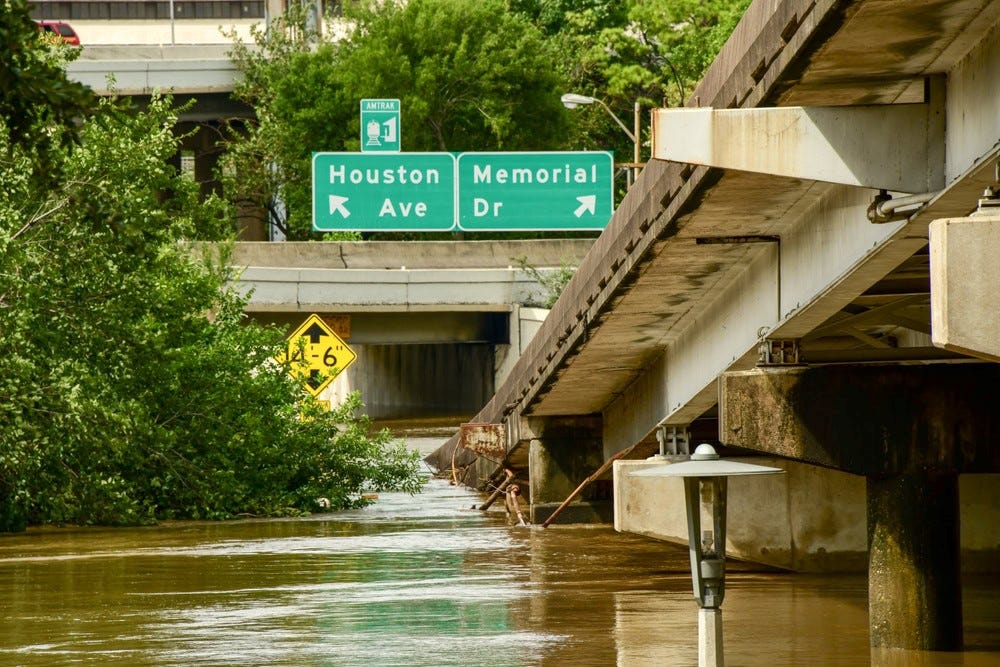Dear Solution-aries,
The recent news hit me like a heat wave: Climate experts have no doubt that we are on our way to overshooting the 1.5°C increase in global heating the UN leaders agreed on in the Paris Agreement of 2015 by at least 1°C before the end of this century. This would have devastating consequences for the Earth and everybody who lives on it.
It’s impossible to distance ourselves from the news. Last week the world recorded the hottest days on record. The changes affect us, no matter where we live.
I was worried when I read the scientists’ predictions but even more worried by the lack of public response to them. Are we so used to horrifying climate predictions that we simply ignore them?
Some of my friends and colleagues are motivated by the bad news to intensify their climate-friendly actions, while I’ve heard from others, “It’s too late now anyways,” or, “What difference does it make if I recycle my trash or drive a diesel?”
I don’t intend to shame anybody, we all can do more than we are doing, myself included, but I do hope we can agree we need to take this issue seriously and do more to reduce emissions. If anything, the survey results are an urgent call to action.
Luckily, the same experts also tell us what we can do to have the most significant impact on climate change.
Hurricane Beryl. Credit: Mathew Risley / Shutterstock
“I am convinced that we have all the solutions needed for a 1.5°C path and that we will implement them in the coming 20 years,” said Henry Neufeldt, the Head of Impact Assessment and Adaptation at the UN’s Copenhagen Climate Centre. “But I fear that our actions might come too late and we cross one or several tipping points.”
The position we’re in could hardly be clearer: We do have solutions, but we need to implement them. Now.
Everything we do matters.
EVERY action matters. EVERY flight, EVERY steak I eat, EVERY unnecessary mile I drive matters. Here are some of the biggest things we can do to help:
Vote
The scientists have identified prime actors who are responsible for failing to tackle the climate crisis: A lack of political will was cited by almost three-quarters of the respondents, while 60 percent also blamed vested corporate interests, such as the fossil fuel industry.
This means that we can and need to use our vote to make ourselves heard. Just look at Brazil: Under Jair Bolsonaro’s presidency, the deforestation of the rainforest reached a 15-year high. In the first six months after Luiz Inácio Lula da Silva took over as president in 2023, deforestation dropped by 33.6 percent.
I’m a single-issue voter. If a politician doesn’t care about climate change, I won’t vote for him or her. We are almost 10 years past the Paris Agreement and still, many leaders of the world are climate deniers. We can still fix this, but we don’t have time to waste on political expediency, profit margins and apathy. It doesn’t matter if they fight for all the other issues I care about, because if our communities become too hot to live in, if our oceans and planet become uninhabitable, then the other issues will no longer seem as important.
So, let’s use our power at the ballot box and at the gas pump. This recommendation is particularly powerful this year when half the world votes, including in the US. Politicians need to know that we care and that we demand action.
The second most powerful action we can take is to reduce flying and fossil-fuel powered transport.
For more scientific recommendations, read the full piece here in Reasons to be Cheerful and let me know what you think.
Another “tradition” we rarely question is using single-use period products. We menstruators are trash monsters. Every month, every one of us uses dozens of tampons, pads or liners. Almost none of it is recyclable, and each year, plastic menstrual products add up to more than 200,000 tons of waste that ends up in landfills or gets burned. It’s the classic quandary of single-use plastic: We only use it for a few hours, but it takes 500 years to disintegrate.
In what is probably my most personal op-ed yet, I wrote about my search for sustainable alternatives. I found them, including a new tampon made from kelp.
Read it here: Can a sustainable menstruation product be found in the ocean?
What do you think? Would you be willing to try it? Are there changes you have already made, like flying less, for instance?
Please let me know in the comments.
Cheerfully,
Michaela





Sending gratitude for another uplifting post. I believe in lighting a candle in the darkness whenever possible. The cave is still dark, but not so bad when you can stand in a corner with others raising their candles with yours.
I have a tip I discovered a few months ago. Two grocery stores on my normal route/s to work have recycle bins that can handle plastic bags plus various elements of packaging that my apratment's recycle bin can't take. I collect items in a recycle bag until I'm visiting one of the stores. It's astonishing to see how much builds up in short periods of time.
Also -- I'm systematically going through all products I use routinely, checking for packaging (replacing with sustainable whenever possible) and ordering as few packages as possible. Also stopped my pandemic habit of ordering everything from Amazon, which doesn't deliver in as few packages as possible.
Thank you again for your commitment to positive changes. You lit my candle this morning!